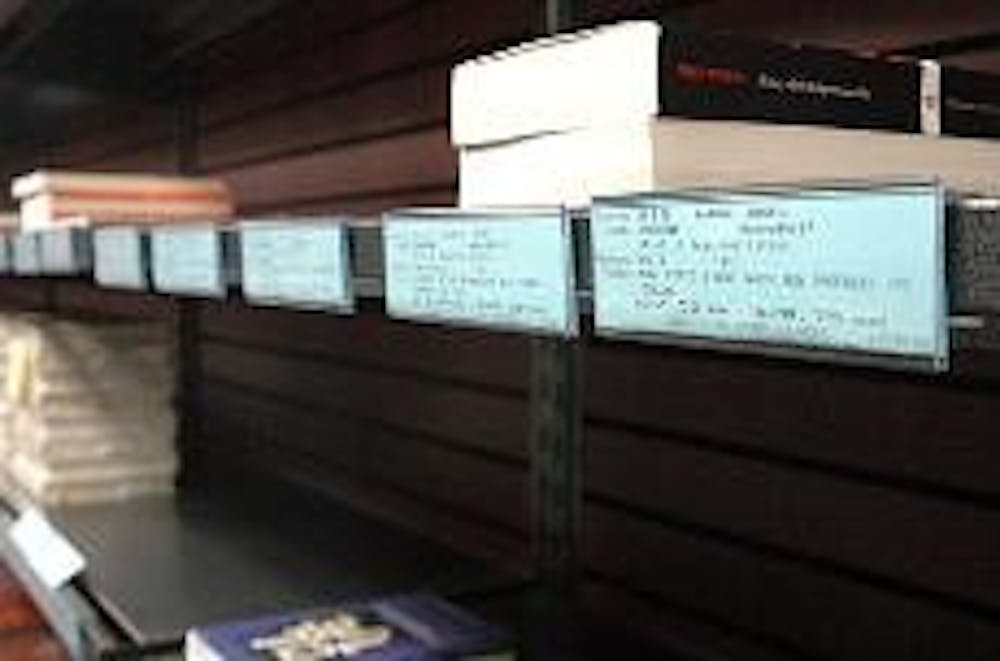The Student Government posted neon flyers across campus last weekend to encourage faculty to save students money by submitting their spring semester textbook adoption lists to the bookstore.
According to SG President Ashley Mushnick's weekly report to the Undergraduate Senate, only 20 percent of the faculty has submitted their adoptions, which were due Oct. 15. The bookstore sets this deadline early to ensure that the books can arrive on time, said Stacy Elofir, director of the campus store.
According to Elofir, the bookstore always offers market price - between 10 percent and 20 percent of the original price - for used books, but during buy-back season students can receive up to 50 percent of the original price if the textbook has been adopted for the next semester. The prices can vary depending on the demand for the book and its condition.
"If we know it's going to be used again, the potential to get more is there," Elofir said.
Although most faculty have missed the deadline, any adoptions turned in before the rush to resell books at the end of this fall semester will allow students to get more for their used books.
"The longer faculty take to turn in their textbook requests, the less money students will receive from the bookstore during buy-back season, and the less used books for our purchase will be available on the shelves this next semester," Mushnick said in her report.
Lisa Vetter, a professor in the School of Public Affairs, said she felt the adoption deadline was set too early because a lot of faculty plan their courses over break or toward the end of the semester, and that a later deadline would allow faculty time to modify their syllabi depending on how many students were enrolled in their classes.
"Don't students want professors to have the ability to be flexible?" she said. "It doesn't sound like anybody's thought about that part of it."
Caitlin Quinn, a freshman in the Kogod School of Business, said she agrees with the SG's push for professors to turn in their adoptions.
"If [professors] expect students to turn in papers on time, they should be on top of their job duties," she said.
Jack Child, a professor in the College of Arts and Sciences, takes a different approach in helping students afford their textbooks. Child said he was not satisfied with any of the textbook choices for his class so he wrote his own book for the course.
To keep costs down, Child doesn't charge royalties, which can add 40 to 50 dollars to the price of the book. He also cuts the cost of textbooks by using rubber bands for binding. In addition, Child said he doesn't ask the bookstore for a desk copy because this copy is charged to students, he said.
Child also has established a program where students currently enrolled in the course can sell their packets to students who are taking the course next semester because the bookstore won't buy packets back from students.
"I was a child once myself," Child said, saying he wants to "keep costs down" for students.
Mushnick said the new Textbook Committee, responsible for overseeing this issue, was formed with representatives from the SG, Auxiliary Services, faculty and the provost's office to make sure as many people as possible were involved in the discussion.
Aside from the flyers that have already been posted, the Textbook Committee will send a letter out to all faculty explaining the need to get their adoption lists in.
"Faculty are not really aware how turning their lists in to the bookstore is affecting students' wallets," Mushnick said.
The Textbook Committee determined that other universities using the Follett textbook company do not have as much of a problem with the Oct. 15 deadline.
"Next semester we want to examine this in more detail to find out why faculty are having trouble," Mushnick said.





